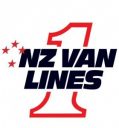The Orchestra is in place. The house lights dim. The audience waits expectantly for the conductor to arrive. Within minutes, the NZSO will begin.
Have you ever wondered about the sequence of events which led up to this moment? Who directed the succession of small details which settled where each player would sit, or even how their instrument made it to the stage – especially if the Orchestra is playing far from its Wellington base?
As you’ve probably gathered, the Orchestra is in very safe hands. The NZSO Orchestra Management department – a tight-knit team of five, as well as trusted trucking partners New Zealand Van Lines – handle the logistics of getting a hundred musicians, instruments, luggage, scores and stage equipment across the country on dozens of tours a year.
Briskly efficient Craig Thorne manages the department, which takes care of everything from booking flights, coaches and hotels; auditioning, trialling and rostering players; fulfilling the production requirements of every performance in every setting, and catering to the needs of international guest artists.
“Proper preparation is the key to successful concerts,” says Craig. “We don’t go on stage unprepared and neither do the players.
“Before the players arrive we’ve thought about all the large and small details – where are the fire exits? Where is the coat rack? Tea machine? What are the security procedures? What is the temperature in the hall? Most of it, if we’ve done our jobs well, nobody sees.”
The stage plan for each concert tour is prepared in advance by Production and Transport Manager Michael Pattison.
“It’s up to me to make sure the stage is set correctly for the musicians – they have chairs, music stands, risers to sit on, lights so they can see their music,” he says. He scans the percussion and timpani lists for the performances, and the required string layout from the conductor. He enters this into his stage plan software.
“Based on the orchestration of the piece I’ll know if we need harps, a piano, a Celesta or harpsichord,” explains Michael. Sometimes the piece is large-scale or unusual – like Berlioz’ Symphonie Fantastique, which requires off stage bells. “In that case I’ll need direction from the conductor about the sound they hope to achieve.”
Once the tour stage plan is organised, Michael briefs the concert halls to advise them of the Orchestra’s technical requirements. He prefers to visit unfamiliar venues in advance.
“It’s quite stressful going to a venue for the first time,” he says. “Unlike theatre shows, or the ballet and opera, we only play once in each place. You only get one shot.”
What is Michael looking for? He ticks his concerns off on his fingers. “Is the stage big enough? What type of fllights do they have? What’s the loading zone like? Are there stairs? Can the truck stay at the venue during the performance? Are there dressing rooms for players?”
Small stages mean using a smaller orchestra – 16 fewer string players in Napier alone. And some venues aren’t concert halls at all, as Craig points out. “Christchurch’s Horncastle Arena is a sports stadium. We have to build the stage; rig the lighting and the soundshell and put in the PA.”
Luckily for our players, Michael is a stickler for detail. “They know that I’ll have done my best. If there’s a challenging stage, they can trust that the way I have them seated is the best it can be in that venue.” On tour, everything goes in the Orchestra’s immense Van Lines truck. Truckie Colin Isaac will often drive all night to get equipment to a venue in time for early-morning unloading. “The truck takes everything we need for the concert: chairs, risers, music stands, all the instruments which aren’t carried on planes, spike protectors for the basses, first aid and civil defence equipment – even the blu-tack for dressing room signs,” reveals Craig.
Meanwhile, protecting players’ instruments is crucial. Keeping them at an even temperature inside the halls is a huge consideration.
“If it’s too cold we risk damaging the instruments. If it’s too hot, glues can soften. Instruments can go out of tune.” To avoid sudden heat changes between tour venues, the truck is climate-controlled, with the heating unit running all day and night to keep its contents at an
optimum setting.
Off-stage technical challenges present themselves all the time. Only last month, Michael found himself buying dozens of cricket balls to fill an off-stage bass drum. This created a thundering effect for the hugely-anticipated Wagner Gala.
On tour, Michael will supervise a pack-in, which invariably takes several hours. At rehearsals he’ll set up and then revisit the stage at breaks. Meanwhile he’ll keep an eye on the clock, and the live stage feed on the TV above his desk. If there’s a stage move or a re-set between pieces, he will manage those – a rare opportunity for the audience to see him during performances.
When the music and the ovations are over, Michael will be among the last to leave the concert hall. He’ll stay to supervise the pack-out, going home or back to his hotel only when the gear is safely stored away and the truck is on the road to the next city. “Taking every programme to more than one city is very challenging, but rewarding when it all comes together.”
If you’re looking for a premium moving company, look no further than NZ Van Lines. Request a quote online or call: 0800 362 236
Published in the NZSO Newsletter, July 2015


